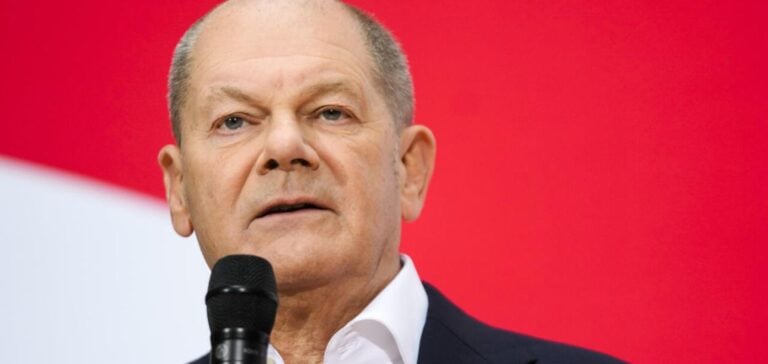Green electricity outages in Germany this winter raise new questions about the energy strategy of Scholz’s government. Two major blackouts, in November and December, led to an unprecedented price surge on the market, reaching €936 per megawatt-hour (MWh) on December 12.
These episodes were caused by a prolonged lack of wind and sunlight, halting wind and solar infrastructures. Energy-intensive companies, particularly those operating on the real-time market, were forced to scale back or suspend their production to cope with soaring costs.
Increasing dependence on imports
To compensate for the domestic production shortfall, Germany imported large amounts of electricity, affecting prices in neighboring countries, including Sweden. This energy dependency has reignited criticism of the viability of the national energy policy and its impact on the European economy.
Olaf Scholz’s government defended its record, emphasizing that renewable energy accounted for 60% of electricity production in 2024. They also pointed out that periods of overproduction often allow for low-cost electricity exports. However, these arguments struggle to address the growing instability of the grid.
Insufficient infrastructure and administrative delays
Germany’s energy transition relies on accelerated development of storage capacities and the construction of gas power plants that can be converted to hydrogen. Yet, these projects are progressing too slowly. Experts highlight bureaucratic hurdles, such as the average seven-year timeline to build a wind turbine, compared to just seven months for a liquefied natural gas terminal.
The recent abandonment of a key bill on gas power plants, a direct result of the collapse of Scholz’s coalition, further aggravates uncertainties. This situation has sparked strong reactions in industrial circles, where Germany’s energy competitiveness is increasingly seen as under threat.
A political debate at the heart of the elections
With the legislative elections in February approaching, the conservative opposition, led by Friedrich Merz, has sharply criticized the government’s energy management. They argue that current policies endanger not only national energy stability but also the European economy.
Markus Krebber, CEO of RWE, Germany’s largest electricity producer, warned about the system’s fragility. According to him, higher energy demands typical of January could have made recent outages unmanageable.
Olaf Scholz’s energy policy is now at the center of the electoral debate, and its future could shape the country’s strategic direction for the energy transition.





















